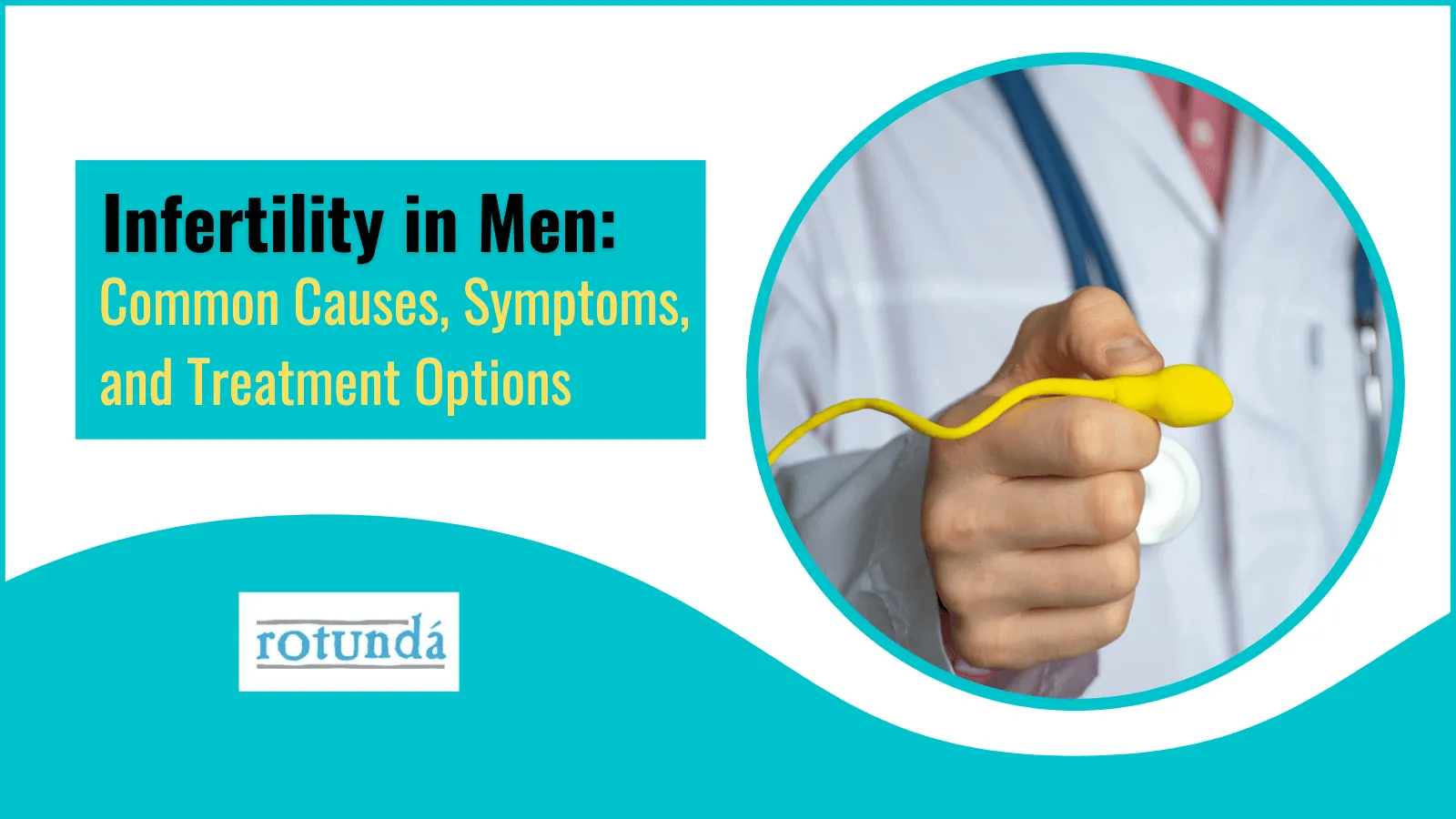



In the modern world, infertility has seen a steep rise, with nearly 15% of couples having difficulty conceiving a child even after having unprotected sex for over a year or longer. Male infertility alone is the prime reason in one-third of these couples, and in another third, both male and female infertility are factors. Apprehending the gravity of the issue, it’s important to learn about the risks, causes, symptoms, and treatment options for male infertility.
Male infertility occurs due to problems in the male reproductive system in either sperm production or sperm deposition into the female reproductive tract. Normally, sperms are produced in the testes that are in the scrotum, stored in a sac called the epididymis, and transported via a tube called the Vas Deferens. When you ejaculate, the sperm mixes with fluid from the prostate and seminal vesicles, forming semen. The semen then travels through the male urine tube called the urethra and is ejaculated out of the penis. Male fertility depends upon your body’s ability to produce enough normal sperm and deliver them into your female partner’s vagina. According to WHO, you should produce at least 39 million sperm per ejaculate or 15 million sperms per ml that can move forward rapidly mixed with normal fluids around them [no pus, not too viscous, contains fructose of 1.5-7.5 ml volume]. These sperms travel through your female partner’s cervix into her uterus to her fallopian tubes. During ovulation, fertilization happens if one of your sperm meets your female partner’s egg. Any disturbance in this whole process can cause infertility.
There are several conditions that can cause male infertility. Some of the most common are:
STDs like Herpes, gonorrhea, HIV/AIDS, chlamydia, syphilis, hepatitis, and mycoplasma genitalium can damage the testes causing poor sperm production.
Inability to have an erection due to chronic ill health, diabetes, medication, spine injuries, or surgery on the male urogenital tract or Hypospadias where the urine opening is on the undersurface of the penis or psychological issues can lead to the inability to deposit sperms. Stress, lack of privacy, or travel at the time of ovulation can also cause infertility. Retrograde ejaculation is a rare condition where sperms are deposited in the urine bladder instead of to the exterior.
Some hormones control sperm production in your body. Any imbalance in these hormones affects both sperm production and deposition, like low testosterone levels, thyroid disorder, hypothalamus, pituitary, or adrenal disorders.
Birth defects like undescended testes, chromosomal abnormalities like Klinefelter’s syndrome [XXY], cystic fibrosis that causes clogging of tubes, Kallmann’s syndrome, or congenital absence of both vas deferens CABVD can cause infertility.
At or soon after birth, the testes enter the scrotum. If they remain in the abdomen or groin area, sperm production is affected, causing subfertility or infertility.
Cancers and benign tumours of the male genital tract or pituitary can affect fertility. Surgery, chemotherapy, or radiotherapy for the treatment of cancer also affect fertility.
Veins around the testes get swollen, raising the testicular temperature and causing low sperm count and motility.
Steroids, some antacids, chemotherapeutic agents for cancer or ulcerative colitis, and arthritis drugs can affect sperm production.
Vasectomy, hydrocele or hernia repairs and testicular surgeries can lead to infertility.
Exposure to radiation or harmful chemicals affects sperm count and motility when working in high temperatures.
Excessive use of Alcohol, tobacco, marijuana, and cocaine, as well as obesity, affect sperms and hormones.
Anti-sperm antibodies are immune system chemicals that mistake sperm for hazardous intruders and try to destroy them.
Some infections, such as mumps, tuberculosis, epididymitis (inflammation of the epididymis), or orchitis (inflammation of the testicles), can cause problems in sperm production.
This can include premature ejaculation, painful intercourse, and psychological or relationship problems that interfere with sex.
Infertility in men brings many challenges in conceiving. Here is the list of males likely to be suffering from Infertility.
The primary symptom of male infertility is the incapability of conceiving a child. However, other symptoms include:
The male infertility treatment varies from person to person depending upon the cause of infertility. The treatment for male infertility includes:
If you cannot conceive a child after a year without unprotected intercourse, consult the fertility specialist immediately for treatment. You can also get your appointment scheduled if you have:
If you have any of these issues, consult a gynecologist or a gynecological hospital today. A professional gynecologist will run a sperm fertility test and diagnose your problem while creating a personalized treatment plan for you. You can schedule your appointment with Rotunda CHR to get rid of fertility issues with our professionals' help. Contact us today!